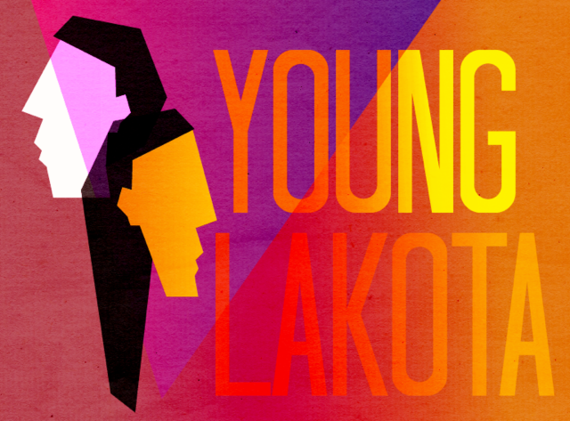Making its public premiere this week on PBS's Independent Lens, the documentary film Young Lakota weaves together the stories of Lakota youth in South Dakota in the wake of an impending state-wide abortion ban.
Young Lakota audiences have the rare opportunity to see the lived experiences of those impacted by harmful abortion bans. We see this second-hand through the eyes of Sunny Clifford, a young Lakota woman who moved back to the Pine Ridge Reservation after attending college for a time in Oklahoma.
The film opens with Sunny, the heart of the story, sharing her desire to make change on the reservation that would be worth coming back for.
"Being filmed required a bit of courage on my behalf. I found it difficult to believe in myself enough to feel I deserved to be heard. When I moved back to the Pine Ridge Reservation, I wanted to do something for my community. I shortly realized that I had to create change within myself," she shared in an interview. "I can only hope that being filmed has enabled me to achieve some sort of positive change for the community."
State restrictions on abortion care, like the 2005 South Dakota ban, undermine a woman's health by meddling in a difficult decision best left to a woman and her family to make based on their unique life circumstances.
Recognizing the centrality of abortion access to a woman's health, Sunny rallies behind Cecilia Fire Thunder, the first female chief of the Oglala Lakota (Lakota people), in campaigning to bring an abortion clinic to the reservation's sovereign land if the South Dakota abortion ban is enacted.
"Reproductive health and justice is vital for the Lakota people's survival because it gives the power back to the woman, who is creating life," she explained.
Considering the epidemic of rape (more than one in three Native women will be raped in their lifetime), paired with the legacy of poor access to reproductive healthcare in Native American communities, the Lakota people were particularly vulnerable to the effects of potential restrictions on abortion in South Dakota.
Even without the proposed ban, women on the Pine Ridge Reservation had to drive six hours to the nearest abortion provider, of which there were a total of two in the state. The film captures a place where the choice created by Roe v Wade means so little in a rural and impoverished community.
The glaring truth inherent in Young Lakota, especially with the Thanksgiving holiday just around the corner, is the full extent to which our nation's painful history of colonization is responsible for the state of healthcare and economic security on reservations--and of course the reservations themselves.
"I think the most pressing reproductive health and justice issue that Lakota women face today is just being aware that they are capable of controlling their bodies' fertility. With awareness comes knowledge and often with knowledge comes action. Instead of reacting to these issues, we need to be proactive and take control of our lives, and that means taking control of our bodies," Sunny said. "Also, being aware allows us to stand firm with our beliefs against a system that has long oppressed us."
Continuing to give voice to young indigenous women's struggles for reproductive justice, Sunny led an online campaign last year to increase access to emergency contraception for women who depend on Indian Health Services for reproductive healthcare.
Her biggest hope is that Indian Health Services can exceed the American standard of health care.
One of Young Lakota's most powerful take-away lessons is the importance of holding up the grassroots work of communities typically underrepresented in the mainstream face of a movement--a lesson the feminist and reproductive rights movement can always revisit.
When I asked Sunny about her thoughts on feminism, she said:
"I do consider myself a feminist, although I only came to the realization a few years ago. I didn't want to be labeled as a feminist before because I wasn't aware of the significance and importance of that label. Rather, I saw the word as divisive between genders. Now I call myself a feminist because I want to take away the negativity that comes with the term."
Another myth about feminism busted, another powerful reproductive justice activist gets their wings.
###
Sunny now lives in California with her husband and they are expecting their first child in February, a pregnancy she is happy to have been able to control the timing of.
Watch Young Lakota online this week at PBS Independent Lens.
